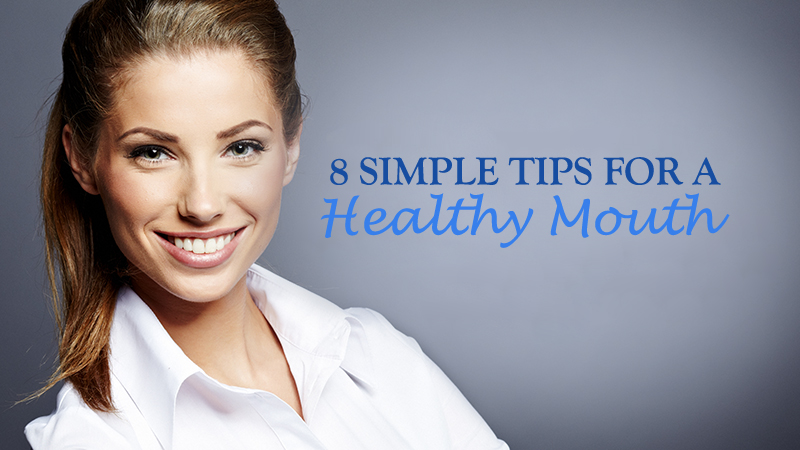1. Brush your teeth. It’s obvious, but the most important thing you can do to protect your teeth is to brush twice a day for 2 minutes each time with a fluoride toothpaste. You can use any type of toothbrush – manual or electric, but we recommend a soft bristled brush. This helps reduce plaque buildup and it strengthens the enamel.
2. Clean between your teeth every day, not just before you visit your dentist!. Most cavities and gum disease occur between the teeth. Your toothbrush does not reach between your teeth, so the best way to reach these hard to reach spots is to floss.
3. You’re not done brushing until you brush your tongue. A tongue scraper is a great way to remove bacteria and debris that can cause bad breath.
4. Sugar, Sugar, Sugar. Decrease the number of times you consume sugary foods and drinks. In general, your teeth can tolerate 4-6 sugar hits a day. Excess snacking throughout the day, especially refined carbohydrates, can increase your risk of decay. Cutting out sugar between meals is a great way to decrease your cavity risk.
5. Don’t smoke! Smoking has a major negative effect on your oral health. Smoking decreases the amount of saliva in your mouth. Saliva helps protect your teeth and reverse tooth decay. Smoking is also the number one cause of oral cancer.
6. Drink plenty of water. You produce, on average, 1.5 liters of saliva a day, which means you need to drink a lot of water to keep us this production. Dehydration will lead to a decrease in saliva production and can lead to tooth decay.
7. Use a toothpaste and rinse with fluoride to help remineralize your teeth. The bacteria in your mouth produce acids which dissolve (demineralize) your tooth enamel. Lucky for you, the damage done can be reversed with the help of fluoride. If the rate of demineralization by acids is faster than the rate of remineralization by fluoride, the tooth will end up with a cavity.
8. Keep regular visits with your dentist and hygienist. Getting a professional cleaning and dental exam is vital to catching small problems early and avoiding expensive treatment. Your hygienist should not only clean your teeth but be a dental educator and motivator. Hygienists are great at showing you the areas in your mouth that might need a little extra attention.

